Marketing for Mental Health Professionals: 23 Strategies For Practice Growth
*Originally published March 12, 2015. It was updated on April 15, 2024.
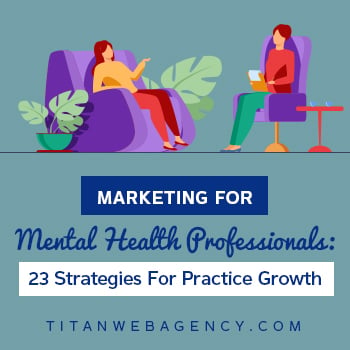
As a busy mental health professional, your focus is on your patients–not on developing a successful mental health care marketing strategy. Even if you have some time to read about specific strategies like mental health SEO or social media, you might not know the most effective way to grow your mental health practice.
When people who need a mental health provider begin their search for a therapist or psychiatrist, they often look to Google first. Google can provide a list of providers in their area as well as in-depth information about mental health issues and illnesses. When your practice is near the top of Google’s search results, you’ll have the best possible chance that patients in your area will choose you as their provider.
Optimizing your mental health practice website for Google will make it easier for patients to find you even if they don’t all use the same search terms. In recent years, Google has continually tweaked its algorithm to focus on providing the best answers to user queries. Your goal, then, is to market your services and create useful and informative content that increases the likelihood that Google will feature your practice near the top of the search results.
At Titan Web Agency, we specialize in digital marketing for mental health professionals. This is our guide to why marketing is essential for mental health providers and the proven strategies you can use to attract more patients and grow your practice.
Exclusive Download:
Click here-----> Get 6 Additional Healthcare Marketing Strategies <------Click here
(Not Mentioned In This Blog Post) To Help You Get More New Patients!
Listen to this blog post:
Why is Marketing for Mental Health Professionals Essential?
The Affordable Care Act has significantly increased demand for mental health providers. As mental health services have become available to more of the general population, those who never considered therapy are now able to do so.
In a crowded marketplace, everything is more competitive, which means that mental health providers must market themselves if they want to stand out and attract more patients.
Mental health marketing may include creating or updating your mental health website, being active on social media, and using proven marketing strategies that are crafted to help you connect with prospective patients in your area.
By engaging with your target audience/persona, you'll be able to communicate exactly what you offer, along with the benefits of choosing your practice. Sharing accolades, highlighting staff members, and engaging in online advertising campaigns can help close the deal and encourage people to schedule an appointment with you.
In this post, I cut to the chase, delivering you 23 essential mental healthcare marketing strategies and tips you can start using TODAY. So, without further ado, let’s get started!
23 Mental Healthcare Marketing Strategies
Why these 23 mental healthcare marketing strategies?
It's simple.
We want you to have the most effective mental health marketing strategy to bring you the most bang for your buck.
Some of these marketing strategies are more in-depth than others and take a bit more to get going.
These are the most effective mental healthcare marketing strategies for psychiatrists, therapists, and other mental health professionals. For each strategy, we’ve given you a tip to get started. Of course, you can always partner with us, and we’ll take your practice's marketing off your hands so you can focus on your patients.
1. Use Some Lead-Generating SEO Strategies as Part of Your Mental Health Marketing Plan
SEO is one of the most crucial aspects of online marketing for mental healthcare professionals such as psychiatrists and therapists. Simply put, it allows people to find you instead of your competitors online. But just because more people visit your site doesn’t mean they’ll turn into viable leads unless you create targeted landing pages that highlight your services.
HubSpot reported that in 2023, landing pages had the highest conversion rate of all sign-up forms, at 23%. That statistic clearly illustrates why it makes sense to create specific landing pages for every marketing campaign.
Landing pages are vitally important for capturing leads and should not be ignored. You'll want to learn about conversion rate optimization to enjoy the full benefits of landing pages. As follows are 5 mental health marketing strategies to generate leads using landing pages:
Host Live Online Events
Hosting online events is an excellent marketing strategy for establishing credibility in your industry and expanding your network. Examples might include a Q&A where you answer questions from your social media followers.
Use The Right Keywords
Spend some time researching relevant keywords related to your audience’s search intent, and have your writer follow best practices for SEO for mental health professionals to incorporate them into the content for your mental healthcare marketing strategy.
Also, look for ultra-relevant long-tail keywords to incorporate into your content creation. These will be easier to rank than the really competitive terms.
Keyword research has changed over the years, especially with the introduction of artificial intelligence.
What is an ultra-relevant long-tail keyword? Say you are a therapist in Henderson, NV.
What do you think is a more qualified lead, a person searching for:
- Therapist Henderson; or
- Therapist in Henderson, NV, who specializes in EMDR
Of course, #2! They are already sold on EMDR, specifically looking for somebody in Henderson who provides this service. So, if you can show up for that particular term, the chances of closing that website visitor are much higher than closing the visitor simply searching for a therapist.
So, what's the quick win you can take from this?
Spend a couple of minutes each day for the next week brainstorming longer phrases that your ideal patients may use, and then write content for those pages.
By doing this one time now, you'll likely be able to generate fairly quick rankings in the search results. Assuming you are practicing good SEO, these rankings may hold unless there's a major change in competition in your local market.
Use Lead Magnets
In the earlier days of 'lead magnets,' it was much easier to get website visitors to provide their details. They liked the idea of receiving information right in their inbox for free.
But these days, information is virtually everywhere, and you’ll need to incentivize visitors to share their details with you.
A lead magnet is a free offer that you can put on your lead generation page to incentivize prospective patients to give you their email, name, phone number, or whatever detail you ask for.
Here are some ideas to pick from:
- Free Consultation
- Discount for those who book appointments online
- Free PDF discussing X stages of grief (example- customize to your ideal patients)
- An educational health guide (packaged in an eBook or eCourse)
This article has good lead magnet ideas and examples for your healthcare marketing strategy.
Develop a Clear Call to Action to Use for Your Web Content

You may already know that calls-to-action are an important conversion element, but if you want results, you have to go beyond just that 'outsider' knowledge to understand how to kick ass with CTAs (calls to action). But adding just one CTA button to your homepage isn't enough.
You need to include CTAs on every page so prospective patients can click on them wherever they are on your website.
This doesn't mean you clutter up your website with flashy buttons everywhere.
Your CTA needs to be enticing and different from the usual "Sign up here," which has become less effective over the years.
A/B Test When Possible
You’ll never know what elements of your landing page affect conversions unless you test them. For instance, did you know that button color can greatly influence the click-through rate?
Get Started Today
To start using keywords to market your mental health practice, you can use the Google Ads free Keyword Planner tool and start searching for long-tail keywords to target.
2. Increase the Effectiveness of Your Website
Your website's main purpose is to attract patients. Mental health practices need to use marketing strategies that convert website visitors into patients to ensure that their site best serves this goal.
Here are some proven elements of a high-converting mental healthcare marketing site:
- Simple layout and design
- Easy navigation
- Multiple forms of contact
- Social media links
- FAQ page
- Well-designed, well thought-out, 'About' or 'Meet the Therapist' page
- Photos, videos, graphics
- Symbols of trust (awards, accreditations, memberships, etc)
Making it easy for visitors to find what they're looking for improves user experience and increases your chance of converting your website visitors into patients.
Get Started Today
Add another form of contact to your website, such as an alternative email address, phone number, chat, ability to text, your Instagram or X handle.
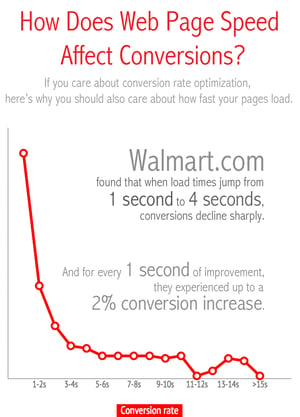
3. Improve Your Website Speed
Website speed plays an important role in conversion.
According to Portent analysis, the highest eCommerce conversion rates occur on pages with load times between 0-2 seconds.
Use a tool like Google’s Pagespeed Insights speed test to monitor and improve the speed of your mental healthcare marketing website across all types of devices.
According to one study, every 1-second delay in your load time decreases user satisfaction by 16%.
Prospective patients are likely to go away if your website takes longer than expected to load.
If you're serious about generating leads and converting visitors into patients, you need to ensure you are paying attention to your mental health website's load time and that you aren't frustrating people with a slow website.
Get Started Today
Check your website speed with Google’s free tool. If it’s taking more than three seconds to load, you’ll need to take immediate action to speed up your loading time. Since that may require updated coding, we suggest working with a professional web designer or mental health marketing agency.
4. Update Your Mental Health Website Content to Improve the Quality of Your Site
Your website is only as good as it is fresh. Even if it was great when you first launched it, the usefulness of your web content diminishes over time as the content becomes dated. Here are the steps to update your mental healthcare marketing website to improve its quality:
- Update your current web content — This includes your website copy as well as “under the hood” elements like URLs and meta tags.
- Edit for credibility — Edit your existing web copy for grammar and clarity, adding sources and statistics to increase its validity. The quality of your copy speaks to your credibility.
- Strengthen your titles and meta-descriptions — Demonstrate the value of your content by highlighting keywords within the title and meta-description.
- Review your site on desktop and mobile— It's possible that your site may not operate as expected in certain situations. Software that runs your site may not be working properly, be sure to regularly test it.
Get Started Today
Go through each site page and test it on both desktop and mobile. Make sure that the buttons work and everything is displaying properly.
5. Build Authority and Improve SEO with Your Blog
According to Optinmonster, having a blog on your website may increase your chances of appearing in search results by up to 464%. Though video content is becoming more prominent, that doesn't mean that blogging should be ignored.
As a mental health provider, you’re an expert in your field, and as such, you have valuable information to share with both existing and prospective patients. You can write blogs (or hire someone to write them) about your services, answer common questions, and focus on general mental health topics.
It's a win-win: You add value to their lives through education; they understand better what you're doing and buy into it.
But that's not all that blogging does. It can also consistently bring visitors to your website, and if you have set up the lead magnet we mentioned earlier, it will allow you to get their email address and market to them in the future.
That's more leads being nurtured and an optimized opportunity for conversion.
In addition to making your mental health website more attractive to visitors, blogging has the potential to bring in visitors (and potential patients) who find you in Google searches. Many people think that Google prioritizes new content, and blogging helps your website rank naturally so that leads can find you. I'm not sure I agree with that. I feel Google prioritizes relevant content and tries to provide the best answer. Often, that is a more recent or up to date answer.
6. Use Effective Messaging in Your Mental Health Marketing Copy

As a mental health provider, the words you use in your marketing strategy copy are incredibly important. This applies to everything from your website to brochures and other printed communications to your social media channels.
Your messaging—the ideas you communicate in your mental healthcare marketing—must reflect your brand and promote your mental health practice and the services and treatments you provide. If your messaging is ineffective, your marketing efforts will suffer.
For example, as this article points out, using wording like “At our practice, we strive to…” will hurt you. Patients don’t want you to try; they want you to deliver.
Get Started Today
Review your marketing copy and update it to reflect confidence and authority.
7. Analytics and Tracking Are Keys to Mental Health Marketing Strategy
Web analytics software allow you to see the behavior of your website visitors, tracking the number of visitors to your site, the length of visits, how people find your site, and what pages they view on your website.
In digital marketing, you can track and measure almost everything and nearly instantly. You can use information to measure and evaluate the effectiveness of your mental healthcare marketing strategies.
Here are some things you can do with web analytics:
- Get referral statistics to know where your traffic is coming from.
- See what search words people use to find you (organic traffic) so you can target these keywords with SEO.
- See your bounce rate or the percentage of visitors that leave your website soon after visiting a single page on your site.
Get Started Today
Sign up for Google Search Console & Google Analytics — my preferred analytics program.
8. Boost Website Visibility with On-Page SEO for Mental Health Professionals
On-Page SEO is one of the most overlooked aspects of building your web presence. However, improving your mental health website’s visibility is vital so that it appears in search results.
5% of all Google searches are health-related. That might not seem like much, but consider the number of topics that people search on Google. Health-related searches account for one in twenty of all searches made worldwide. That’s a lot!
According to Backlinko, the top search result on Google grabs 39.8% of all traffic, which illustrates the importance of prioritizing SEO on your mental health practice page.
Here are some elements of on-page SEO:
- User Experience (UX)-focused web design
- Relevant keywords
- Optimized for bots and crawlers
- Highly shareable
- Mobile-friendly
- Search-optimized photos
- Quick load time
We started working with one practice, and in less than four weeks (a quicker-than-usual timeframe), we were able to drastically improve their ranking for important keywords on Google by focusing primarily on on-page SEO.
Start by strategically integrating targeted mental health keywords into your web copy to make your website easier for search engines to read and understand. That means using them in headers, anchor text, and in your alt and meta descriptions.
But while doing that, be careful not to over-optimize your content!
Excessive (and unnecessary keywords) can turn readers off and jeopardize your brand. Good SEO involves effective keyword research and writing quality content around those keywords. Your website elements, such as meta tags and page titles, are also part of SEO.
Get Started Today
Give the photos and graphics on your site clearer titles and alt images to optimize them for SEO. (This is a 'piece of the puzzle', not the end all be all).
9. Stay Updated on the Technical Aspects of SEO for Mental Health Practice
Keywords and other on-page factors are only the first steps in search engine optimization.
You should also take a few minutes to make sure your website is search engine friendly by running your site through a crawler, such as Screaming Frog.
Programs such as Screaming Frog will show you all your errors, redirects, and all other website components that you may need to fix to get the maximum amount of 'juice' or ranking ability out of your website.
Which would you rather do?
- Go through your website page by page and look at everything 'under the hood'?
- Run a report and have it spit out the results in a few minutes?
You can use the information you gather to improve the on-page SEO of your mental healthcare website.
Get Started Today
Commit to checking your site’s crawlability whenever you make major changes. Run Screaming Frog or a similar tool monthly to keep up with technical SEO.
10. Bond with Your Target Market
You must do more than offer outstanding mental health services to attract loyal patients. You also need to use mental health marketing strategies to connect with patients online. One of the best places to do this is on your blog, but you can use the same strategy on your service pages, social media content, and ads. The following content creation tips can help you bond with your target market and increase patient satisfaction:
- Expound on your services, emphasizing the benefits of your mental health services and how they can help patients.
- Put yourself in your readers’ shoes, taking a conversational tone and asking for patient feedback.
- Ask members of your staff to contribute regularly and share their personal experiences.
- Gear topics toward your local audience.
- Integrate your blog with social media to promote sharing.
Get Started Today
Write a blog post on a topic that involves both a local event and services you offer.
For example, you could blog about a charity event your practice is participating in. For additional blogging tips that can be used by mental health providers as well as dentists, read 7 Ways for Dentists to Use Their Blog to Bond With Their Target Market.
11. Identify Your Unique Selling Proposition to Compete in a Crowded Field

If you don’t have a USP or unique selling proposition for your mental healthcare practice, it’s high time you get one. Defining your USP will benefit you in important ways. For example, it will make you more competitive in your field by helping you identify your target market and providing direction for your branding efforts.
Your USP is what differentiates your therapy or psychiatry practice from other practices or what makes your business special. You can also think of your USP as your mental health niche. For example, you might specialize in family systems therapy, addiction recovery, or treating children with trauma.
It's quite simple: an effective mental health marketing plan will emphasize what makes YOU unique and why people should choose you instead of one of your competitors.
Get Started Today
Brainstorm for a few minutes on how you would define your mental health treatment niche. Then, consolidate these ideas into one or two sentences.
For more advice on identifying your USP, read How Can a Dentist Develop a Unique Selling Proposition?
12. Create a Strong Online Presence Through Location-Based SEO
All mental health practices need a strong local presence so that people searching for mental health services in the area you serve will find your practice online. For this reason, local SEO is more important than generalized SEO for mental health providers.
As a provider, you also need to ensure that your marketing strategy strongly focuses on your local business listings. Local search is essential for mental health providers because you want to appear in the Google local traffic results. As noted above, the top search result in Google grabs the lion’s share of the traffic.
Local SEO requires a strategic, holistic approach, with regular testing and tweaking as Google’s algorithms change. You’re not going to win at local SEO in a day. But there are some tools you can begin using right away to get started with local SEO.
Some of the best online tools for improving your local SEO include:
Geo-targeting is the practice of determining a visitor's location and delivering relevant content to them based on geographic criteria like country, region, state, city, zip code, IP address, etc. It can be used to target local patients through paid and organic search.
You can use Google Trends to enhance your geo-targeting campaign. Google Trends is a tool that shows how frequently a search term appears, as well as how healthcare marketing trends over a period of time and across different locations.
Get Started Today
Schema is another piece of the local SEO puzzle. Fill out the Schema Generator form to generate the Schema markup for your website and apply the schema as appropriate.
13. Have An Engaging Social Media Strategy for Mental Health Practice
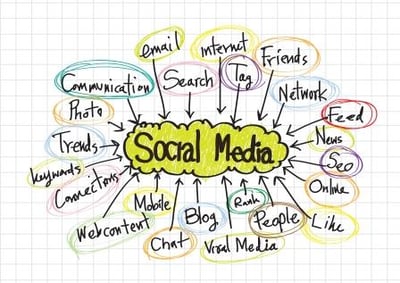
Social media is ever-evolving. At one point, it was great for driving traffic to your website and for interacting with people who may be interested in what you do.
Let's get this out of the way- Social media isn't what it once was. At one point, you could rely on organic traffic to see your posts and updates. That organic traffic has all but dried up. If you want to grow your presence in social media, it's more about building a brand and consistently using it to create content, respond to others, and post engaging information.
A search for mental health providers on Facebook resulted in 1000s of pages, groups, and posts from psychiatrists, therapists, and social workers with mental health practices. As of the time when we wrote this post, 5.04 billion people are using social media worldwide. More than 70% of Americans have an active social media profile.
People use social media platforms to search for everything from what to eat for lunch to the best-paying jobs to the best therapists in their city. As a smart professional, you must take advantage of this.
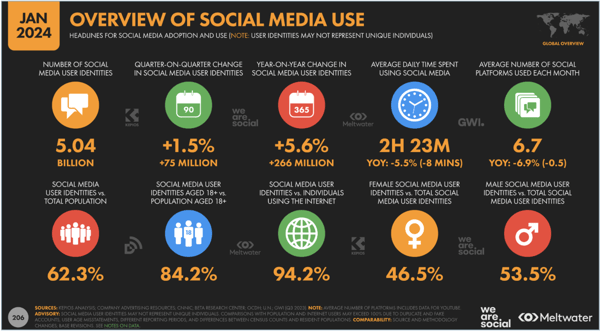
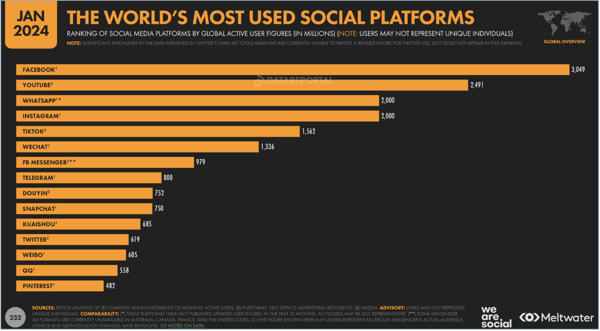
Whether you’re a licensed therapist, a social worker, a psychologist, or a psychiatrist, social media is a great way to connect with potential patients. Most mental healthcare professionals have a social media presence, but few of them leverage social media to maximize its potential for attracting new patients.
Here are just a few things you should be doing on social media on a regular basis:
- Retweeting and favoriting things your followers post
- Commenting on your followers’ posts
- Responding to people’s tweets and posts to/about your business
- Connecting with other professionals in your field or local area
- Uploading shareable videos, photos, and content
Social media management can be time-consuming, but it can be much easier if you use some helpful tools. Hootsuite, Social Oomph, Buffer, and IFTTT are all examples of popular social media automation tools that can save you time.
Each tool has its own unique features, but nearly all of them can help simplify your social media marketing efforts by:
- Helping you manage and post to multiple platforms
- Scheduling posts, messages, and Tweets
- Tracking mentions of your mental health practice
- Offering social media traffic analysis tools
Tools like Hootsuite allow you to track all your social media profiles, including activity, shares, messages, and mentions.
While we recommend using automation tools to schedule posts, don’t make the mistake of setting up posts and then walking away. Scheduling in advance can allow you to post while you sleep, but it shouldn’t replace logging into your profiles, engaging with your audience, and expanding your social media reach.
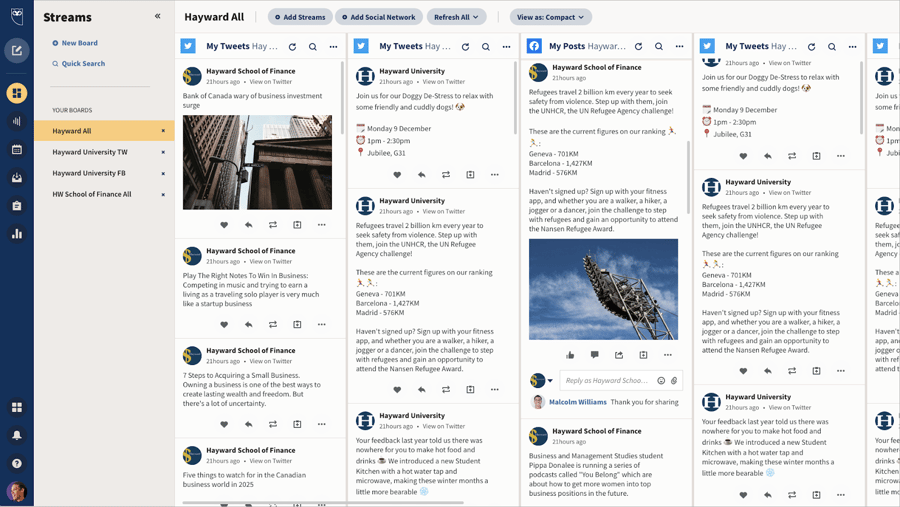
You don’t need to spend hours a day on social media to be effective. Logging on for 15 minutes daily is enough to help you focus on posting relevant and organic content (publishing it through your automation platform), responding to engagement you’ve received on your previous posts, and searching for new opportunities to connect with your audience.

While some mental health providers don’t do enough online marketing, others take it too far in the other direction, going crazy with pushy sales messages via email and social media.
In general, a good rule of thumb is to post on Facebook about once a day. X (formerly Twitter) is slightly different, as you can post more often without annoying people. Learn more about how doctors and other healthcare professionals can time social media posts for maximum effectiveness.
Get Started Today
Add some colleagues or business associates to your professional network on LinkedIn. Maybe even ask for an endorsement, always keeping HIPAA confidentiality in mind. Check it out; it's a great way to build credibility. Here are a few of my endorsements on LinkedIn.
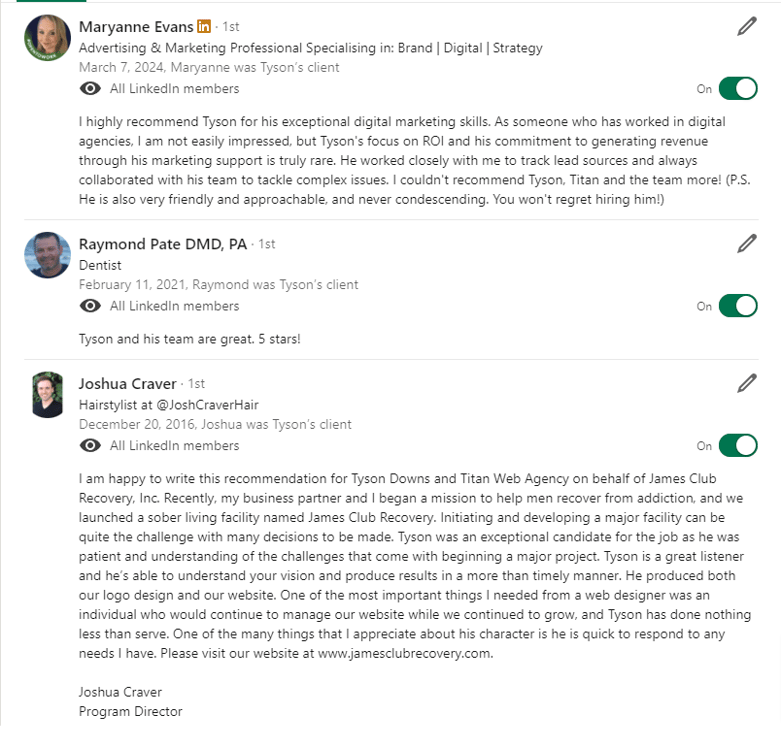
Do you want help getting started with social media? Pick up our social media templates below.
14. Have a Website Built with User Experience in Mind
Your website is your primary sales force and the face of your practice. Both new and returning patients should get value out of it. Your website needs certain elements to connect with people, thereby enhancing your reputation and ultimately growing your mental healthcare practice.
Here are some tips on how to do it:
Add a Smiling Image of Yourself
Make sure you’re dressed professionally and that your office looks warm and welcoming.
Adding a photo of a smiling, happy person can increase conversions (calls, sign-ups, sales, etc).
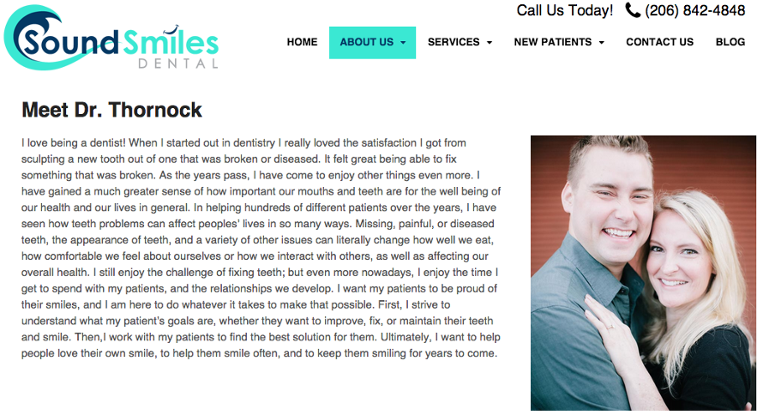
Address Points of Friction
Some prospective patients may have concerns about setting up an appointment. While it’s not as bad as it used to be, there’s still a stigma around mental illness and treatment. People may also worry about the cost or (in some cases) be unwilling to enter treatment at all.
These concerns, disagreements, and objections are called friction. They delay prospective patients from scheduling an appointment. To erase friction, it’s necessary to understand what might prevent a prospective patient from choosing your services and address their objections (directly or indirectly) in your content.
Get Started Today
One way to reduce friction is to provide upfront answers to simple concerns such as the benefits of your services, pricing, office hours, and what to expect regarding the first appointment, etc.
Your site's FAQ page is the perfect place to provide potential patients with the necessary information to encourage them to book an appointment with you.
Build Trust
Building trust can help you address friction, but it’s more than that. In fact, trust is one of the most essential conversion triggers there is.
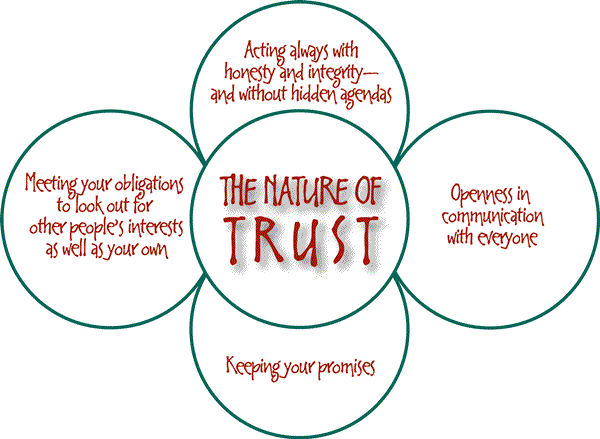
Here are some quick ways to build trust:
- Use social proof, case studies, customer online reviews, and/or testimonials
- Include trust badges on your website (Member of the Chamber of Commerce, an accreditation, BBB membership, etc.)
Make It Easy to Contact You
Prospective patients need to contact you to book an appointment with you, right? That means it should be as easy as possible for them to reach you. Offering your potential patients different contact options can make all the difference.

While contact forms are useful tools, most people hate CAPTCHA and wouldn't bother entering it. So, if you use a captcha, make it an effective yet easy one to use.
Consider having an option for people to chat with you on your website as well as text you. Again, make it easy for visitors to get in touch with you.
Provide Appointment-Booking Features for Patients
Since you're looking to get people to schedule appointments with you, we recommend that you integrate a calendar into your website to allow potential patients to book a time that’s convenient for them.
Does your website offer the ability to book an appointment online? It’s something patients expect, and they may choose one of your competitors if they prefer to do business online instead of calling. It's an easy thing to add, in fact, your practice management software may even provide a small snippet of code that you can place on your site, which will add a cool little 'Book Appointment' button on your site.
You can see below that Mandy Copeland, counselor in Denver, makes it easy for website visitors to book an appointment.
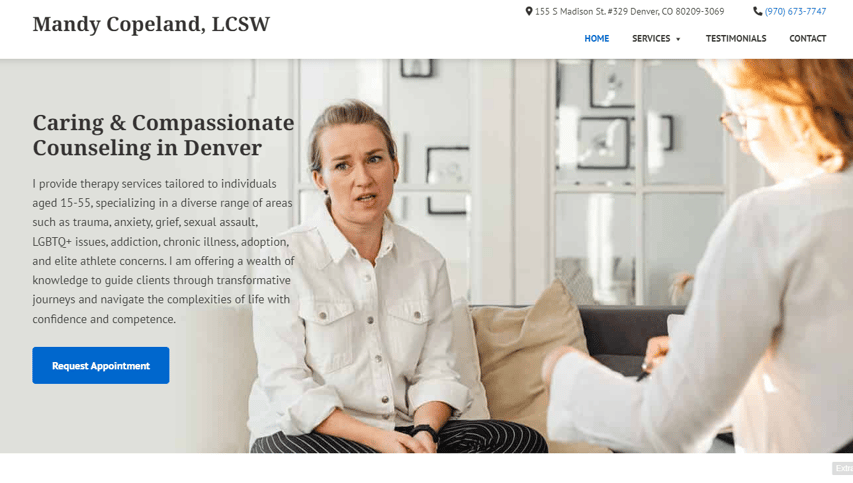
Get Started Today
Get your staff together to brainstorm ideas for filming a quick, fun video that you can post on your site, reducing friction, and building trust.
15. Put Together a Mental Health Marketing Campaign
Mental health professionals can greatly benefit from collecting email addresses and building an email list of current and prospective patients. List segmentation can help you tailor emails to your patients’ interests and concerns. You can use your mailing list to send out regular mental health newsletters and to update patients and leads on industry advances and happenings within your practice.
Building an email list might seem daunting, but it’s worthwhile. You may want to involve your mental healthcare marketing agency, as it can be time-consuming.
For your email marketing to be successful (i.e., provoke the response you want and not be viewed as spam), it needs to demonstrate value and get to the point quickly. Here are several things you can do to make your email marketing campaign work for you:
- Email regularly but not too much
- Create quality titles and content
- Make calls to action clear and concise
- Ask for input to encourage a two-way conversation
With email marketing, it’s ideal to reach out to your list about once a month. A weekly email will probably cause many people to hit the “unsubscribe” button. Also, be careful with your subject line and content so that your emails don’t end up in people’s spam folders.
Pop-up forms (opt-in forms that pop up just when a visitor is about to leave your site) are great for capturing leads from your marketing emails. Remember to include a privacy assurance in the forms to reduce risk and show prospects that you care about their privacy. If your website is built on WordPress, then take a look at some of the best opt-in pop-up plugins.
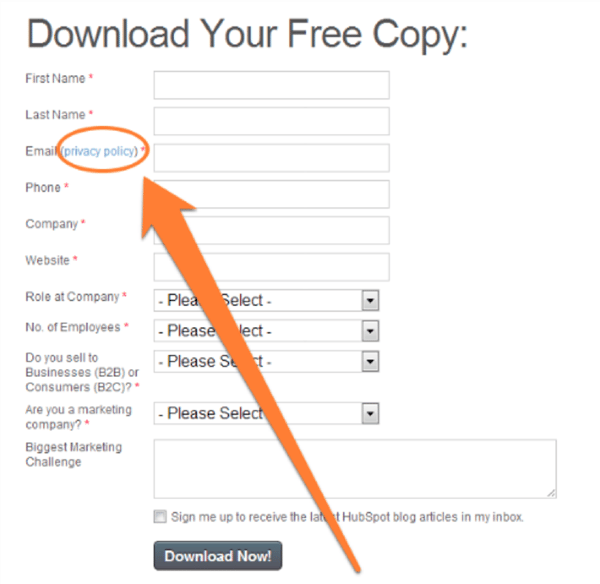
Email marketing is the most fundamental digital marketing tactic that you can use to follow up with leads who have expressed interest in your practice by signing up for a mailing list.
There are a ton of great automation tools out there to save you time on this task, such as:
Choose the one with the best pricing and features, and you'll save time thanks to features such as triggered emails and campaign analytics.
Get Started Today
If you haven’t already, get started with an email marketing service. Automating your email makes tracking analytics and a/b testing extremely easy.
You can read more about the components of a successful email marketing campaign in An In-Depth Look at Email Marketing for Dentists.
16. Creating a Marketing Sales Funnel
Not every visitor to your website will schedule an appointment right away. Many of them won’t need immediate mental health care, or they may be shopping around to find the right fit for their needs. For that reason, creating a sales funnel that will allow you to nurture leads and convince them that your practice is right for them is essential.
The smartest thing to do is to collect their details as outlined above AND create a sales funnel through which you can nurture leads and drive them through the conversion process until they're ready to visit you.
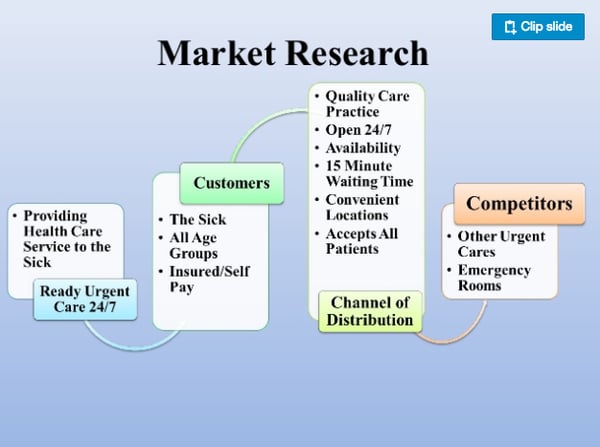
Bonus tip: Browse a sample healthcare marketing plan or two. Reviewing a healthcare marketing plan example will help you figure out how to execute your strategy.
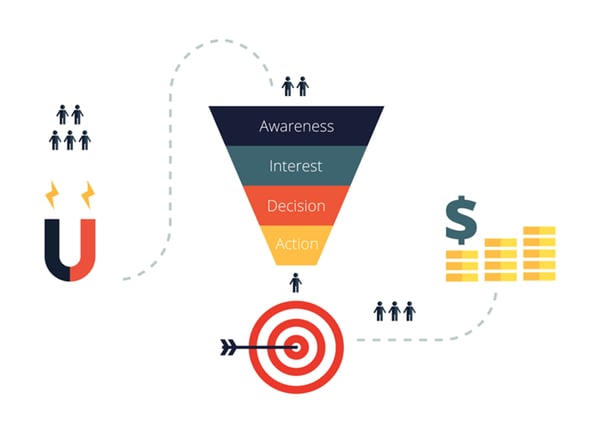
Email marketing is an essential part of your marketing plan, as are retargeting ads, social media content, and blogs. With every interaction, you’ll build trust and convince prospective patients to contact you.
Get Started Today
Start brainstorming how mental health providers can speak to potential patients during the awareness, interest, decision, and action phases of a sales funnel. Then, read my blog post, The Anatomy of a Perfect Marketing Email for Doctors, to get started.
17. Create a Content Marketing Strategy to Inform and Engage Patients
There are already authoritative sources for mental health-related information like WebMD and Healthline. Be sure to make a significant effort to attract patients who are accessing this information. To be successful in this evolving marketplace, mental health professionals need to post new and high-quality content that relates to their practice. This can be done via blogs, white papers, podcasts, posts on social media, and more.
Think about content marketing in terms of brand image and value. No matter your profession in the mental health industry - whether you're a licensed social worker, therapist, or psychiatrist - the principles remain consistent. By actively managing your online presence, you can drive traffic to your website, increasing your chances of attracting new patients. Moreover, maintaining visibility and relevance online will also aid in retaining your current patient base.
Content marketing is a key aspect of online marketing for mental healthcare professionals that works in tandem with other marketing techniques, such as SEO and social media marketing. Like all the mental health marketing tips on this list, creating great content helps increase your practice’s visibility online.
Here are some easy ways you can create content:
- Blogging on a regular basis
- Writing guest posts for other people’s blogs
- Posting PowerPoint presentations on Slideshare
- Uploading videos to YouTube
Blog posts, in particular, are an awesome way to post new content on a regular basis. I recommend blogging on popular topics people might be searching for and including photos and links to authoritative resources to increase the value of your content.
Do prospective patients frequently ask about how a specific type of therapy works? Here are some sample questions.
- How does cognitive behavioral therapy work?
- How do I know if I’m a good candidate for CBT?
- What is the cost per session?
There are other types of content you can create, such as emails, visual content, videos, case studies, and reports that you can use to draw in new patients. But here’s the deal:
Content creation is arguably the most time-consuming part of any mental health practice marketing plan.
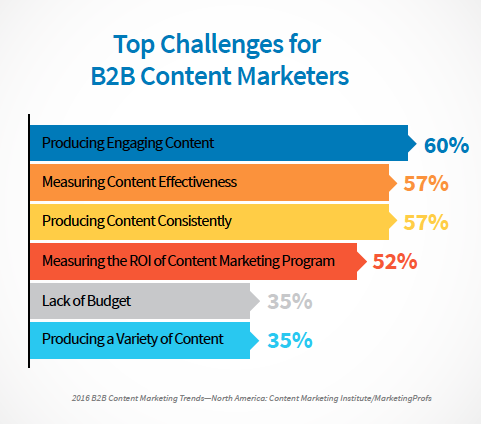
At a basic level, you’ll need to keep your blog updated. That’s likely not a task you can hand over to your staff. That means you may need to hire a marketing agency that specializes in mental health marketing.
Get Started Today
Open a YouTube account for your practice’s video marketing. If you already have one, great! Upload a short video with whatever technology you have available (your iPhone, Flip camera, etc.). It doesn’t have to be anything fancy — it could just be you talking for two minutes about a service you offer. Pro-tip: Grab a little mic that you can plug into your phone, so you’ll be sure to have good sound quality.
18. Obtain High Quality and Relevant Backlinks to Your Website
Google is all about offering high-quality, relevant search results. One of the most important factors that impact how Google perceives and ranks your practice website is whether or not other high-authority websites are talking about and linking back to your site.
Building backlinks can be a time-consuming task, but there are a few strategies in the mental health industry you can use to get quality links in a short amount of time.
Reach out and start getting backlinks by:
- Guest blogging on other relevant sites
- Getting quoted in an article (called an editorial link)
- Getting local press (newspaper or website in your area)
- Creating profiles & citations
- Joining professional associations
19. Reputation Management — The Key to Convert New Patients
Reputation matters. Social proof (third-party reviews and endorsements) is essential for any mental health practice seeking to gain clout and build trust with potential patients. Patient testimonials, reviews, and case studies should be a significant part of your marketing plan. Luckily, you don’t have to put too much effort into gathering them.
You’re already taking time every week to look for feedback online, including negative mentions and glowing reviews that reflect positive patient experiences.
One way to stand out is to get positive reviews on Yelp, Google Business Profile, Facebook, and other well-visited and authoritative websites.
According to Medical Economics, 75% of all patients start their search for a new healthcare provider by reading online reviews. If you don’t have good reviews or no reviews at all, the odds are that the patient will choose another practice.
To get more online reviews, make it easy for patients to review your practice and encourage them to do so.
- Email patients review requests that only require them to click a button or a link to get to your review page.
- Offer links via your website and social media profiles.
- Keep the review process short and simple, letting patients know that writing a review will only take a few minutes of their time.
You can do this by creating a review portal with an easy-to-remember URL that you can direct patients to, as well as adding a Write Review button on your website. Here’s what my review portal looks like.
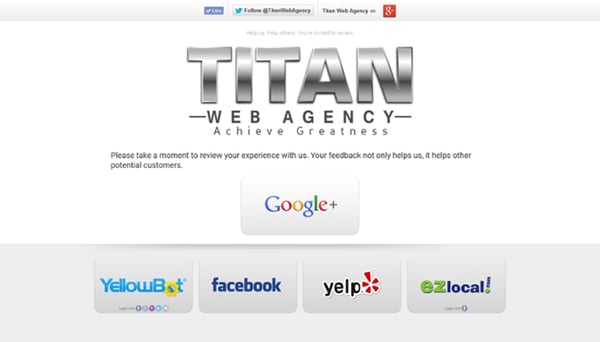
You can display reviews on your website to instill confidence and increase conversions. There are widgets you can install to make the process easy. You can also reach out to patients and ask them if they'd be willing to come in and speak about their experience for a minute or two on camera.
A video marketing testimonial is 10x more powerful than a text testimonial! If they agree to this, be sure to be respectful of their time and stick to the agreed-upon time limit.
You can record testimonials on a phone, but you may want to pick up a mic for your phone to ensure good audio quality. You may even want to interview them to put together a full-blown case study for your mental health marketing plan.
You should also spend some time replying to both negative and positive reviews you might receive.
Why?
For starters, negative reviews may appear when people access your Google Business Profile. Even if you aren't signed up for Google Business Profile, you still may have a page that Google created, so be sure to check by going to google.com/places and create or claim your page.
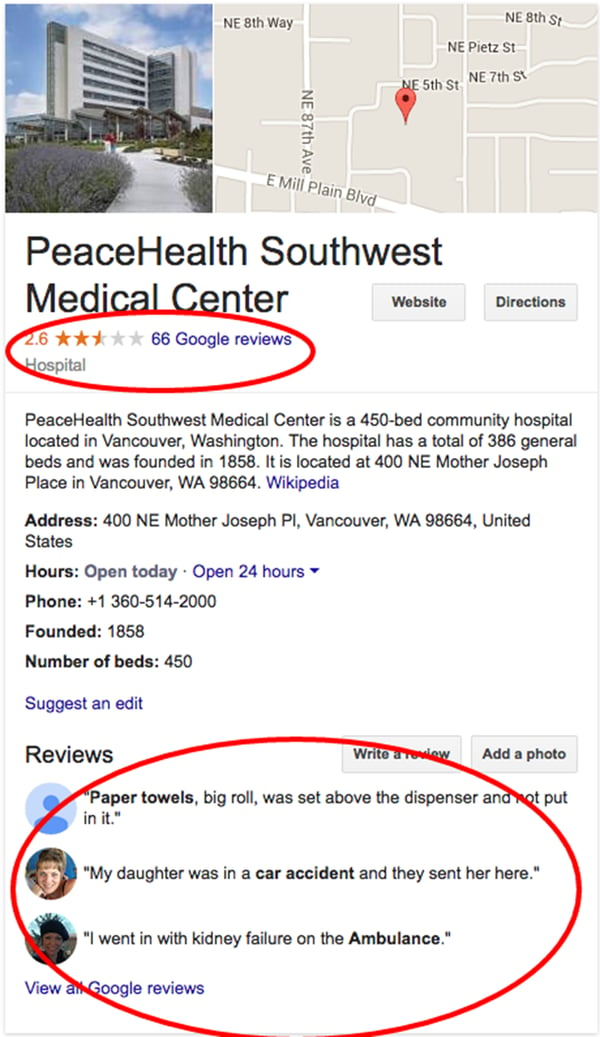
Notice that Google reviews are displayed prominently in the listing’s featured snippets. This can have a serious impact on your click-through rate, as negative reviews may scare people off, and this can ultimately impact your search ranking.
The good news is that replying professionally to negative reviews can be as beneficial as a good review. Prospective patients will see that you’re someone who cares about your patients and doesn’t shy away from feedback, whether it’s negative or positive.
Every week, take a few minutes to read any new reviews about your business that appear on Google, Yelp, and other third-party platforms. Depending on the issue, you may even be able to resolve the problem and turn a negative review into a positive one.
It’s obvious why having positive reviews online is good for business, but here’s the best part:
The more reviews you have, then the more it can help your mental health practice rise in the search engine rankings.
Get Started Today
Add business information to your Yelp and Healthgrades profiles to make it easier for patients to find you and leave reviews. Be sure your Google Business Profile page is set up properly and that patients can find it. Consider setting up a review and reputation management page using MyReview.
20. Consider Direct Mail for Cost-Effective Mental Health Marketing
Direct mail can be an easy, cost-effective way to advertise your therapy or psychiatric practice — and you can complete most of the steps online.
For $500 or less, you can use a program like Vistaprint or Every Door Direct Mail (EDDM) to send out postcards to a targeted group of prospects in your service area. Many healthcare professionals, including mental health providers, prefer direct mail because of its high return on investment.
Get Started Today
Look into obtaining a list of your target prospects to send direct mailings to. You can read our blog post Why Dentists Should Be Using Direct Mail, which includes general information about direct mail that may be helpful to you.
21. Make Sure Your Website is Mobile Responsive
The truth is that your website is a virtual online office that represents your mental health practice. Imagine a patient walking into your office only to find it messy and disorganized. You wouldn't be surprised if they turned around and walked right out.
The same thing can happen when they land on your website only to find that you used seven different colors that don’t match. Chances are, they'll leave almost immediately without taking any action.
If you haven't gotten the point yet, here's a one-line summary:
You need a clean, professional-looking, and responsive site to present your practice and services well to prospective patients.
Going for something cheap or edgy can cost you leads, new patients, and revenue.
These days, there are many platforms with thousands of beautiful themes that you can use to build a website that stands out.

Your site's responsiveness must be a priority. Many prospective patients will look for mental health services on their mobile devices, so you must design for their screens. Not having a mobile-friendly mental healthcare website means you're missing out on tons of traffic and business, and your mobile rankings could take a hit.
Roughly 60 percent of online traffic now comes from mobile devices such as smartphones and tablets. This means that if your mental healthcare marketing website isn’t optimized for mobile, most people who visit your site will quickly leave it.
There are several types of mobile-friendly website configurations, but Google recommends using the responsive design configuration, wherein your site renders the same regardless of the device you use.
If designing a simple but cool website is not your thing, you can hire the services of a professional web design company.
Get Started Today
Find out how mobile-friendly your website is using Google’s free Mobile-Friendly Test.

22. Use Influencers in Your Mental Health Marketing
If you're looking to get the word out about your practice, you may want to consider working with influencers. These people have a large social media following and know what types of content resonate well with their followers.
Many of your potential patients may be young adults or teenagers whose parents still manage all aspects of their healthcare decisions — so they would need some convincing, too. According to Influencer Marketing Hub, 31% of consumers find services and products through social media influencers. Most brands have a portion of their budget dedicated to influencer marketing. Your next new patient could be one Instagram post away!
Get Started Today
Use your Instagram, Tik-Tok, or X account to search for the most important keywords for your practice. Identify influencers who talk about mental health and mental illness, and consider contacting a few to see if they’ll partner with your practice.
23. Take Advantage of Paid Search Ads
Search engine optimization is the organic marketing strategy to earn greater visibility in the non-paid search results online. Even if your site ranks number one for a search term like “therapist in Tulsa,” there are still 3-4 paid advertisements above your site.
While traditional advertising is often created to be flashy and intrusive, pay-per-click (PPC) ads are more subtle. A Google Search ad will appear first on search engine results pages when the user types keywords or phrases you've specifically selected for targeting purposes. When it comes to paid advertising, there's no need for guesswork: You can tell exactly how much money an individual campaign costs per day/month by setting your maximum daily budget based on what you're willing to spend each month.
Get Started Today
Use your Google Ads account to learn which keywords are the most competitive in your service area. Then, create an ad targeting one keyword. Remember that you’ll get the best results with a targeted landing page that matches the content of the ad.
Let’s Plan Your Mental Health Marketing Strategy
After reading these 23 proven marketing strategies, I hope you’re ready to create mental healthcare marketing campaigns that will attract new patients and help you reach your practice growth goals. If you’re not sure, you may require some help improving your mental health marketing.
If you need help with marketing, click the image below to contact us today for a consultation.
About the Author
Tyson Downs is the founder of Titan Web Agency, a company specializing in marketing for dental professionals. With an impressive track record of working with over 100 dental practices, Tyson has a deep understanding of the unique marketing needs within the dental industry. His expertise has helped numerous dental practices flourish by meeting and surpassing their revenue goals and established him as a thought leader in healthcare marketing. His insights and strategies have been featured in esteemed dental publications, including the American Dental Association and the American Academy of Implant Dentistry. Before dedicating his career to helping dental professionals thrive through effective marketing, Tyson honed his skills in SEO and web design as a freelancer, while also gaining valuable experience in the corporate sector. As an alumnus of Brigham Young University, he brings a strong educational background to his entrepreneurial endeavors. Outside of his professional life, Tyson is a devoted father of five, who cherishes time spent with his family, especially when they're all enjoying America's pastime on the baseball field.
Leave a Reply 0 comments






